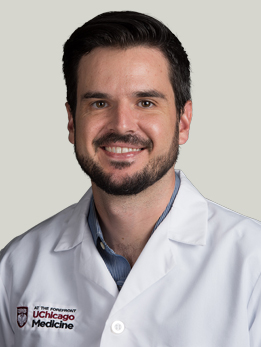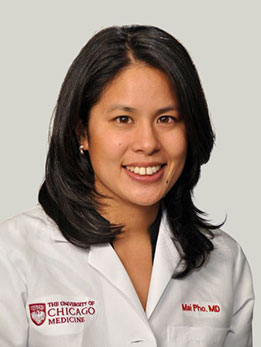
ECHO-Chicago: Opioid Use Disorder in the Emergency Department
Target Audience
Learning Objectives
- Define best practices in prescribing opioids from the ED;
- Discuss examples of opioid prescribing guidelines and strategies for implementation in a department or hospital;
- State how to use prescription monitoring programs in the ED;
- Identify opioid alternatives for acute pain management;
- Describe indications where an opioid alternative may be effective;
- Recall the definition of Medication for Opioid Use Disorder (MOUD or MAT) and its role in the ED;
- Identify which patients are most appropriate to start MOUD in the ED;
- Discuss the resources required for an individual provider and/or department to practice MOUD in the ED;
- Explain the evidence supporting take-home naloxone and its role in harm reduction;
- Identify which patients would benefit most from take-home naloxone and the laws that facilitate its distribution and use by lay persons;
- Recall infectious complications of opioid use disorder and appropriate treatment;
- Discuss how to incorporate infectious diseases screenings in the ED;
- Summarize the legal protections patients that use drugs have while being treated in the ED;
- Relate basic approaches to verbal de-escalation and the role law enforcement and security can play in the treatment of patients that use drugs;
- Review the terminology, pharmacokinetics, and toxidromes related to methamphetamines;
- Identify the most common complications from methamphetamine use and their presentation to the ED;
- Discuss management of acute and chronic complications of methamphetamine use disorder.
- 8.00 AMA PRA Category 1 Credit™
- 8.00 Participation
Agenda subject to change.
WANT TO KNOW MORE?
ACCESSIBILITY The University of Chicago is committed to providing equal access appropriate to need and circumstances and complies fully with legal requirements of the Americans with Disabilities Act. If you are in need of special accommodation, please contact ECHO-Chicago via e-mail via at [email protected].
The University of Chicago reserves the right to cancel or postpone this conference due to unforeseen circumstances. In the unlikely event this activity must be cancelled or postponed, the registration fee will be refunded; however, The University of Chicago is not responsible for any related costs, charges, or expenses to participants, including fees assessed by airline/travel/lodging agencies.
UNIVERSITY OF CHICAGO COURSE DIRECTORS
Disclosure Declarations
As a provider accredited by the ACCME, The University of Chicago Pritzker School of Medicine asks everyone in a position to control the content of an education activity to disclose all financial relationships with any ineligible companies. This includes any entity whose primary business is producing, marketing, selling, re-selling, or distributing healthcare products used by or on patients. Financial relationships are relevant if a financial relationship, in any amount, exists between the person in control of content and an ineligible company during the past 24 months, and the content of the education is related to the products of an ineligible company with whom the person has a financial relationship. Mechanisms are in place to identify and mitigate any relevant financial relationships prior to the start of the activity.
Additionally, The University of Chicago Pritzker School of Medicine requires Authors to identify investigational products or off-label uses of products regulated by the US Food and Drug Administration at first mention and where appropriate in the content.
The University of Chicago Pritzker School of Medicine is accredited by the Accreditation Council for Continuing Medical Education to provide continuing medical education for physicians.
The University of Chicago Pritzker School of Medicine designates this live activity for a maximum of 8 AMA PRA Category 1 Credits™. Physicians should claim only the credit commensurate with the extent of their participation in the activity.
University of Chicago Medicine is a Registered Social Work Continuing Education Sponsor through the Illinois Department of Financial and Professional Regulation and will offer continuing education units for ECHO-Chicago: Opioid Use Disorder in the Emergency Department for LSW and LCSW social workers in the state of Illinois.
Other healthcare professionals will receive a Certificate of Participation. For information on the applicability and acceptance of Certificates of Participation for educational activities certified for AMA PRA Category 1 Credit™ from organizations accredited by the ACCME, please consult your professional licensing board.

Please Note: The credit claiming process will close three months after the conference end date. Requests to claim credit after three months will be subject to additional fees.

 Facebook
Facebook X
X LinkedIn
LinkedIn Forward
Forward
